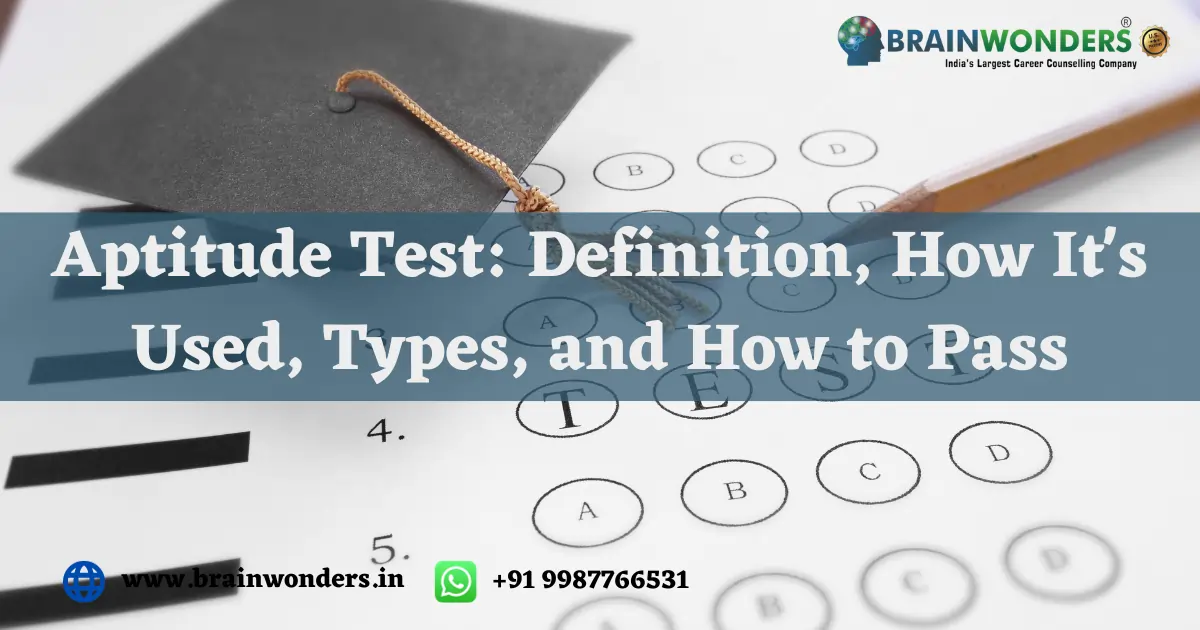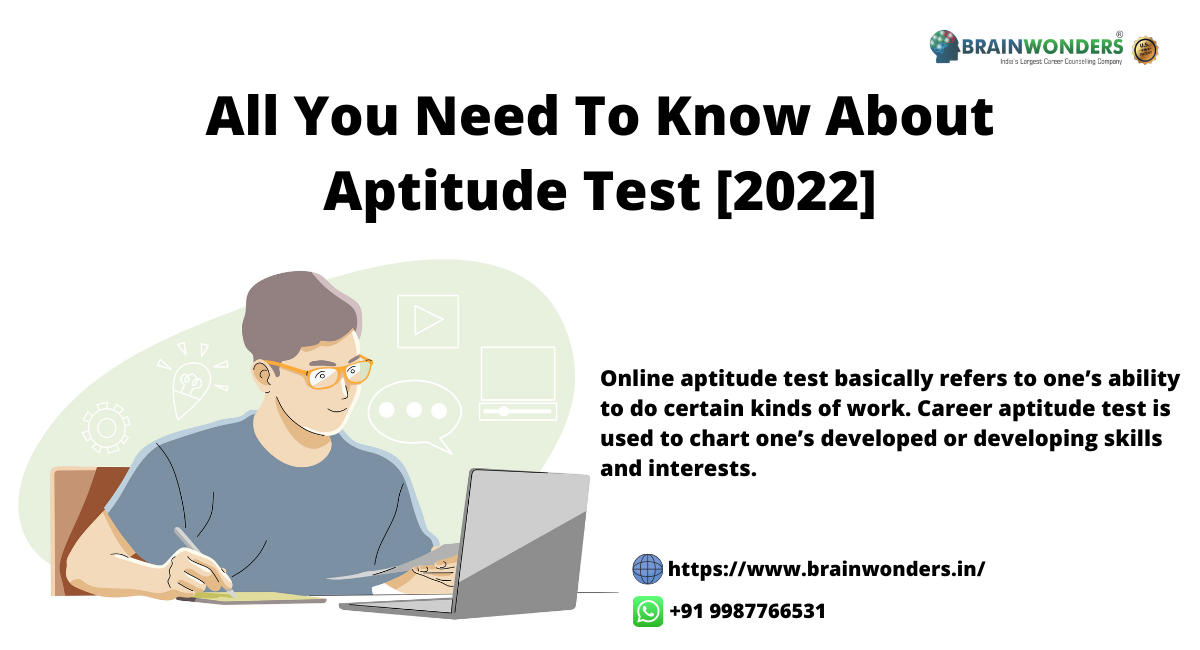

There are many great careers, but your potential is unique.
Identify your skills and talents and align it with one of the top performing careers!
Blog
18 January,2024 | By Brainwonders

Aptitude is basically a natural skill or talent that someone has. It can also mean how quickly a person can learn or grasp new ideas. People can have these skills from birth, or they can pick them up over time. When people talk about aptitude, they're usually referring to someone's knack for a certain activity or subject. An aptitude test is just a way to check out someone's natural abilities in a specific area.
An aptitude test helps figure out what someone is good at and how likely they are to do well in a certain area. The idea behind these tests is that everyone has their own strengths and weaknesses, which can impact their performance. You often see these tests used for job placements, college admissions, or to help people figure out which career paths might fit them based on their interests and skills. Schools might use these tests to see if students are suited for advanced classes in subjects like engineering or languages. In businesses, HR departments look at these tests to understand the strengths and weaknesses of job candidates. Aptitude tests focus on specific skills rather than just knowledge or intelligence, which is why they're not helpful for studying or test prep.
Aptitude tests help figure out what someone is good at in different subjects. For example, people often take these tests to see what careers might fit their strengths and interests. High school students might also take them to think about what college majors could work for them or if going to college is the right choice. Usually, these tests look at skills like logical thinking, math abilities, and language skills. They check how well someone can solve problems and think critically in various situations.
Some schools start testing kids as early as elementary school. These tests, along with others that check intelligence and skills, help figure out if a student might fit into gifted programs, need special help, for Older Students, Curriculum Guidance, Hiring Decisions.
Various domains of aptitude tests serve educational and career discovery purposes, evaluating individuals' abilities and potential. The most prevalent categories of aptitude tests encompass:
Mechanical Reasoning:
This looks at how well you understand basic physical concepts like forces, motion, energy, and simple machines. It shows how good you are at visualizing how things interact in the physical world. (Carpenter, Just, & Shell)
Situational Judgment:
This tests your decision-making skills, how you interact with others, and how you would respond to different job-related scenarios. It’s a solid way to predict how well you might do in jobs that involve a lot of social interaction and emotional skills. (McDaniel, Morgeson, Finnegan, & Campion)
Spatial Reasoning:
This measures how well you can visualize and work with two- or three-dimensional objects and understand their spatial relationships. It's particularly important for success in STEM fields, especially when it comes to navigation and handling objects. (Voyer, Voyer, & Bryden)
Abstract Reasoning:
This checks your ability to see patterns and relationships in messy information. It’s tied to general intelligence and your knack for solving new problems (Horn & Cattell)
Numerical Reasoning:
This evaluates how you handle numerical data, solve math problems, and grasp concepts like ratios and percentages. It’s a key sign of cognitive ability, particularly in jobs that involve a lot of number crunching. (Ritchie & Tucker-Drob)
Verbal Reasoning:
This looks at how well you understand language, focusing on reading comprehension and vocabulary. It helps predict academic success and job performance, especially in roles that need strong communication skills. (Carson)
Inductive Reasoning:
This tests your ability to spot patterns and make generalizations based on specific observations. It’s linked to general intelligence and is important for problem-solving and creativity. (Jensen)
Logical Reasoning:
This evaluates how well you can analyze patterns or sequences and make conclusions based on logical rules. It’s associated with strong thinking skills and decision-making abilities. (Sweller)
Clerical Aptitude:
This measures your ability to do tasks related to data entry, accuracy, and attention to detail, like proofreading and organizing information. It’s a good predictor of success in administrative jobs where speed and accuracy matter. (Wexley & Latham)
Objective: They are set up to be fair, avoiding any bias so that a person's natural skills and talents are evaluated properly.
Time-bound: Aptitude tests are time based which means that the individual has to complete the test in that time range.
Predictive: Aptitude tests helps to predict the future, for eg how well the person will perform in exam in the future or if the person is suitable for the specific job role or not.
Variety of Formats: Aptitude tests can include multiple-choice questions, visual puzzles or either written tasks.
An aptitude test measures how well you can learn new skills, complete important tasks, and do well in your particular setting. These tests don't really gauge your intelligence; they focus on finding out where you're strong and where you might need some help, giving you and the tester a clear view of what you can do. While most aptitude tests can suggest how you might do in school or in a job, they’re not always spot on. For example, you could do great in your job even if you didn't do well on the aptitude test. Sometimes, a low score just means you were not familiar enough with the subject at the time of the test. It’s worth noting that getting ready for the test can help you perform better, even if you're not too knowledgeable about the topic. If you see it as a chance to learn something new, you might just surprise yourself with what you can do.
Identify your skills and talents and align it with one of the top performing careers!
